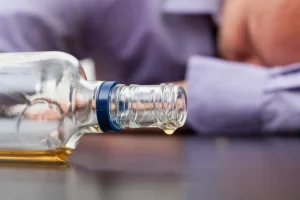
Leveraging existing study data and using qualitative data collection techniques to identify barriers and methods to overcoming barriers are also needed. The existing literature suggests that families play a key role in motivating persons with AUD to recognize the need to change, providing support for change, and supporting long-term recovery and that AUD recovery is good for families. Most of our current knowledge, however, has come from studies of relatively small clinical samples or from treatment studies. Similarly, the lack of research on the role of the family in AUD recovery in diverse populations is a major gap in the current literature.
The Role of the Family in Alcohol Use Disorder Recovery for Adults
Such data might be used to inform novel and accessible adjunct interventions and tailored treatment modifications to insulate people with AUD and their families from high-risk situations. Participation in support groups like Alcoholics Anonymous (AA) or Narcotics Anonymous (NA) can be beneficial for individuals in recovery and their loved ones. These groups offer a powerful platform upon which to romantic relationships in recovery share experiences, challenges, and victories, providing both parties with insights into the recovery process and how to maintain healthy relationships. Additionally, therapy, whether individual or couples/family therapy, can offer tailored strategies to address relationship issues and improve communication. Relationships can be a source of support, or they can be stressors that threaten sobriety.
How Can Effective Addiction Treatment Nashville Solutions Help
If you think you may have a drinking problem, you’re definitely not alone. In 2021, researchers estimated nearly 30 million people ages 12 years and older in the United States had alcohol use disorder (AUD). If you can tell them about the accommodations, visitation, and amenities ahead of time, they may be more willing to go to treatment.3 https://ecosoberhouse.com/article/how-to-naturally-reduce-alcohol-cravings/ Learn more about what alcohol rehab has to offer through alcohol recovery stories from real people. First, attending a family education program offered by a center while my husband was attending its residential program. Those three days informed my understanding of what was happening to Bill and us as a family unit.
Try Healthier Activities To Avoid Urges And Triggers
- Once the symptoms become worse, individuals may self-medicate and turn to substance abuse for support.
- Moreover, you shouldn’t use NyQuil as a sleep aid or for long-term treatment of symptoms.
- Consistently staying sober and making amends for the past can restore trust and respect, creating a solid foundation for healthy relationships.
- It can take time to recover your marriage during the recovery process, but support is available.
- Your body has acclimated to quitting drinking over the past couple of years.
If you don’t want to meet face-to-face or call, try writing a letter or an email to initiate contact. If you receive a positive response, you may want to suggest meeting up to apologize and make amends. If not, give your loved one time to process the information and wait until they’re ready to connect with you. It largely depends on family structure, coping mechanisms, and how everyone adapts to the substance abuse. Addiction can take a heavy toll on people close to the user, such as spouses, family, and friends. Further, the effects of alcohol and drug addiction can persist through generations.

Role of Partners and Family in AUD Resilience

There are no other competing financial interests or other conflicts of interest to declare. Mixing NyQuil and alcohol is dangerous and can have serious consequences. It increases the chance of an overdose, liver damage, impaired immune system, and addiction. The best thing you can do to help your partner and yourself is present options, be supportive, and follow through on any consequences you present. Consider stepping back from your partner if the problem is too overwhelming.

How to repair relationships after substance use disorder
This final stage is considered relatively stable in comparison to the earlier three stages. This is because recovery is now solid, and attention can be turned back to the person with alcohol use disorder and the family. An item that may also be addressed in the early recovery stage is continual support within the family unit to stay focused on their own recovery. Attempts may be made to help the person gain insight into why life has become unstable for so many in the family unit.
- When it was triggered, which often occurred in his family relationships, he immediately withdrew.
- Chronic drug and alcohol abuse can damage relationships, and lead to severe emotional pain and unhealthy coping skills, such as enabling.
- Step 8 involves making a list of all the individuals we have harmed and being willing to make amends with them.
- Rebuilding trust is challenging but possible with time and effort, often with professional help.
These relationships serve as a solid foundation for personal growth and ongoing support in maintaining long-term recovery. When making amends, listen to the other person’s feelings and validate their experiences. Respect their boundaries and prioritize their emotional well-being throughout the process. Before reaching out to those you have harmed, it can be helpful to seek guidance from resources for addiction recovery, such as a trusted sponsor, therapist, or mentor who can offer support and help you navigate the process. Codependent individuals may find their self-esteem and self-worth closely tied to the well-being of the addicted person. They may sacrifice their own needs, desires, and boundaries to prioritize the needs of the addict.
This includes strategies such as removing alcohol from their home; avoiding events or places where alcohol may be or has been present in the past and removing unsupportive people, who encourage them to drink, from their network. I was attracted to his sensibilities and the ease with which he could be just as comfortable in his business suit as his biking gear. In early recovery, his affect was very abrupt, and his affection felt stiff. Those questions haunted me for a long time as Bill struggled to reconnect with his emotions. He often expressed how he felt foggy and resented how it impacted our physical intimacy. For almost a year and a half, we experienced a new kind of rollercoaster until he found the proper medication and acceptance of its place as part of his treatment.
- Keep in mind, the family member with alcohol misuse issues could be a child or adolescent—as opposed to an adult.
- Codependency can continue to affect marriages even after your partner has become sober.
- They can help you and your partner connect and empathize with people sharing similar struggles.
- It largely depends on family structure, coping mechanisms, and how everyone adapts to the substance abuse.


